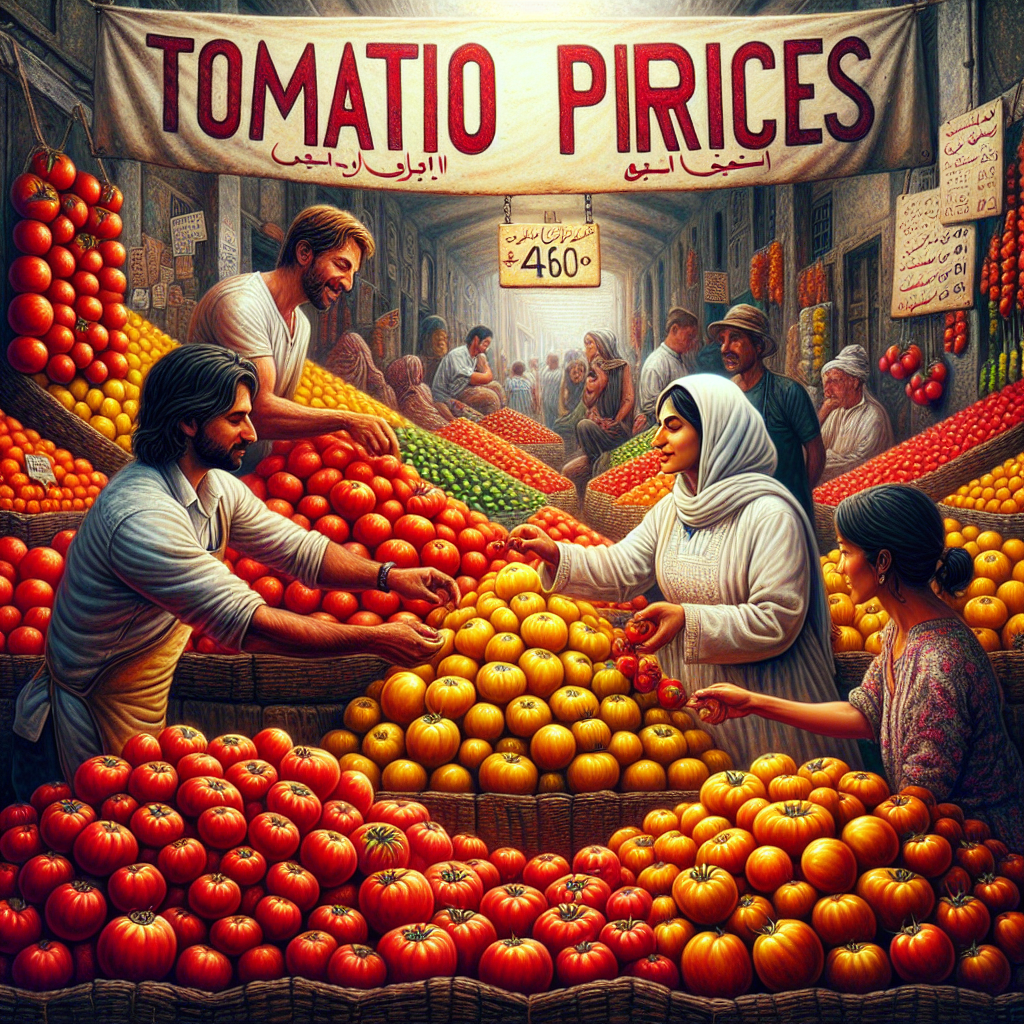Tomato Grand Challenge Yields Innovative Solutions to Stabilize Tomato Supply Chain and Reduce Wastage
With 28 ideas receiving funding and mentorship, the Tomato Grand Challenge aims to revolutionize the tomato value chain through innovation and sustainable practices.

- Country:
- India
The Department of Consumer Affairs, Government of India, in collaboration with the Innovation Cell, Ministry of Education, launched the Tomato Grand Challenge (TGC) on 30th June 2023 to foster innovation across various levels of the tomato value chain. The initiative sought solutions to address the ongoing challenges faced by India's tomato sector, including production, supply chain inefficiencies, post-harvest losses, and market volatility.
With India being the world’s second-largest producer of tomatoes, producing around 20 million metric tons annually, the country faces severe challenges due to adverse weather conditions like erratic rainfall and sudden heat waves. These conditions cause significant price fluctuations, disrupt supply chains, and lead to large-scale wastage, impacting farmers’ incomes.
The Tomato Grand Challenge received an overwhelming response, with 1,376 ideas submitted from students, research scholars, start-ups, industry professionals, and faculty members across India. After a comprehensive evaluation process, 28 ideas were selected for funding and mentorship to support prototype development and eventual commercialization. Smt. Nidhi Khare, Secretary of the Department of Consumer Affairs, shared this update with the media.
The primary objective of TGC was to identify scalable and innovative solutions that could address the systemic issues in tomato production, processing, and distribution. The main challenges identified include:
Pre-Production: Limited access to climate-resilient seeds and poor agronomic practices.
Post-Harvest Losses: Lack of proper cold storage facilities and mishandling, leading to spoilage.
Processing and Value Addition: Inadequate infrastructure for processing surplus tomatoes.
Supply Chain Inefficiencies: Fragmented supply chains dominated by middlemen causing price volatility.
Market Access and Demand Forecasting: Inconsistent access and lack of tools to predict market demand.
Technological Adoption: Low awareness and usage of advanced agricultural technologies like IoT and precision farming.
Packaging and Transportation: Need for innovative packaging solutions to enhance shelf life and reduce losses during transportation.
After Round 1 of evaluation, 423 ideas were shortlisted, with 29 progressing to Round 2. In total, 28 projects received funding and mentorship to develop prototypes and provide innovative solutions to the challenges outlined above. These projects underwent regular monitoring and evaluations by the TGC Evaluation Committee comprising experts from AICTE and DoCA.
The final evaluations took place on 14th-15th October 2024, where projects were judged based on their relevance, scalability, and innovation. This initiative has resulted in significant outcomes, including 14 patent filings, 4 design registrations, 4 trademarks, and 10 publications.
Key outcomes from the Tomato Grand Challenge include:
Innovative Packaging and Transportation Solutions: To enhance shelf life and minimize post-harvest losses.
Processed Tomato Products: Creation of value-added products that extend usability and reduce wastage, ensuring year-round availability.
Scalable Solutions: Developed solutions that promise to revolutionize the tomato value chain, increasing resilience, reducing wastage, and improving profitability for farmers and consumers.
The TGC initiative has paved the way for similar programs aimed at addressing challenges in other agricultural sectors across India. By harnessing the collective potential of academia, industry, and government, the Tomato Grand Challenge underscores the power of collaboration and innovation in creating sustainable solutions for the agricultural sector.
This initiative is a significant step towards ensuring that farmers are empowered, consumers benefit from consistent product availability, and the tomato supply chain is made more resilient, equitable, and efficient. Through such collaborative efforts, India is setting a new benchmark for agricultural innovation in the global market.
- READ MORE ON:
- Consumer Affairs
- Tomato Grand Challenge










